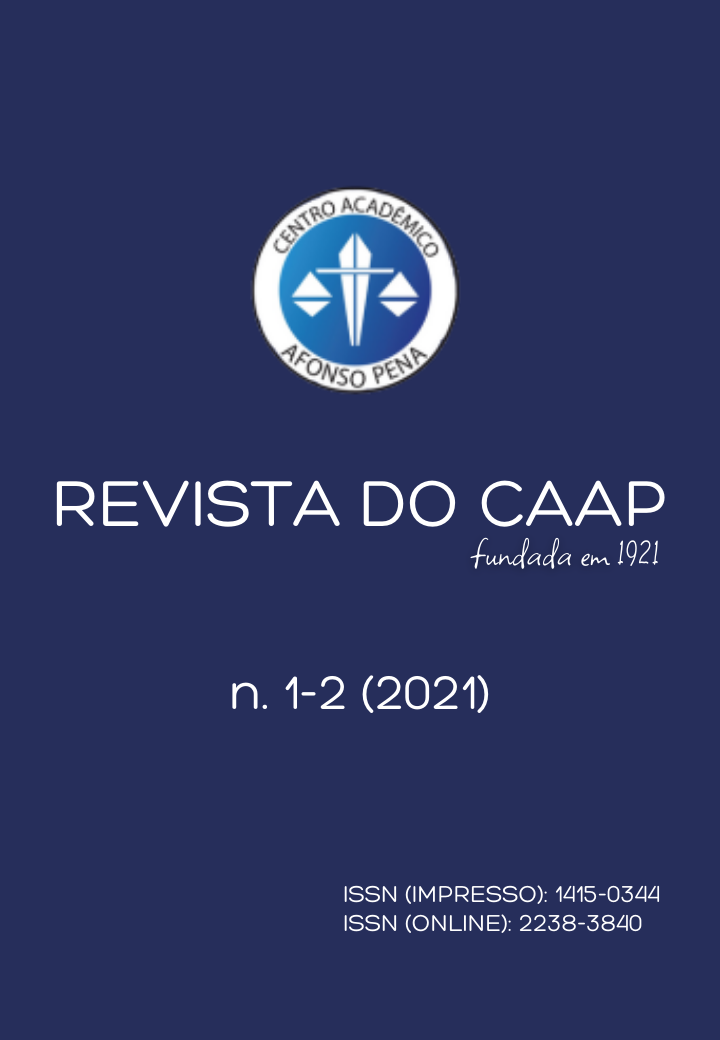Politics, war and Hegel in Carl Schmitt social éthos
DOI:
https://doi.org/10.69881/rcaap.v26i1-2.47003Abstract
The present work is a study on the thinking of the politician and his social ethos in a dialogue between Hegel and Carl Schmitt. The work looks at Schmitt's Hegelian roots, such as the formation of the rule of law, the philosophy of law, and the definitive thought of the absolute found in Hegel to form the fundamental line of thought of Carl Schmitt's social ethos formation. The formation not only of the friend-foe theory as well as the denial of self for war are common Schmitt concepts that are of Hegelian origin and for this reason are powerful tools for the compression of the dialectical reality and movement of the nation states and of the philosophy of the State. Hegel's talk with Schmitt is a study of personal relations with the state and the form of government promoted by it.
Downloads
References
CARDOSO, Paulo Roberto. Soberania e exceção em Carl Schmitt. Dissertação de Mestrado –UFMG, Belo Horizonte, 2009;
CASTELO BRANCO, Pedro Hermílio Villas Bôas. Secularização Inacabada: Política e direito em Carl Schmitt. Curitiba: Appris, 2011;
CLAUSEWITZ, Carl Von. Da Guerra. Rio de janeiro: Editora perspectivas realidades, 1976;
DYZENHAUS, Dave. Law as Politics. Carl Schmitt's Critique of Liberalism. London: Durham & London, 1998;
HEGEL, Georg Wilhelm Friedrich. Filosofia do Direito. São Leopoldo: Ed. Unisinos, 2010;
HEINRICH, Meier. Die Lehre Carl Schmitts. Vier Kapitel zur Unterscheidung Politischer Theologie und Politischer Philosophie. Stuttgart: Weimar, 2004 – Disponivel em https://hrcak.srce.hr/index.php?show=clanak&id_clanak_jezik=155687, acesso em 16 out. 2017;
KERVÉGAN, Jean-François. Hegel, Carl Schmitt – O político entre a especulação e a positividade. Barueri: Manole, 2006;
MACEDO Jr, Ronaldo Porto. Carl Schmitt e a fundamentação do direito. São Paulo: Max Limonad, 2010;
SALGADO, Joaquim Carlos Salgado. A ideia de Justiça em Hegel. Belo Horizonte: Loyola, 1996.
SALGADO, Joaquim Carlos. O Estado Ético e o Estado Poiético. Revista do Tribunal de Contas do Estado de Minas Gerais, Belo Horizonte, v 27, n. 2, pág. 37-68, 1998;SCHMITT, Carl. Legalidade e Legitimidade. Belo Horizonte: Del Rey, 2007;
SCHMITT, Carl. O Conceito do Político. Lisboa: Edições 70, 2015;
SCHMITT, Carl. Teologia Política. Belo Horizonte: Del Rey, 2006.
Downloads
Published
How to Cite
Issue
Section
License
Copyright (c) 2020 Revista do Centro Acadêmico Afonso Pena

This work is licensed under a Creative Commons Attribution 4.0 International License.


